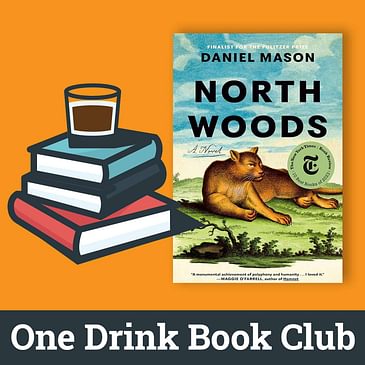In this episode of the One Drink Book Club, Jamey discusses North Woods by Daniel Mason with his guest Billy Jones. North Woods is a novel that follows the stories of successive owners of a house and property in Western Massachusetts over 300 years. Jamey and Billy share some apple-inspired cocktails and also chat about Billy's recent project--the filming of the DunKings Super Bowl commercial with Ben Affleck, Jennifer Lopez, Tom Brady, and Matt Damon. Find the recipes and other episodes at: https://www.onedrinkbookclub.com/




